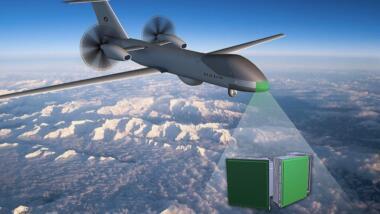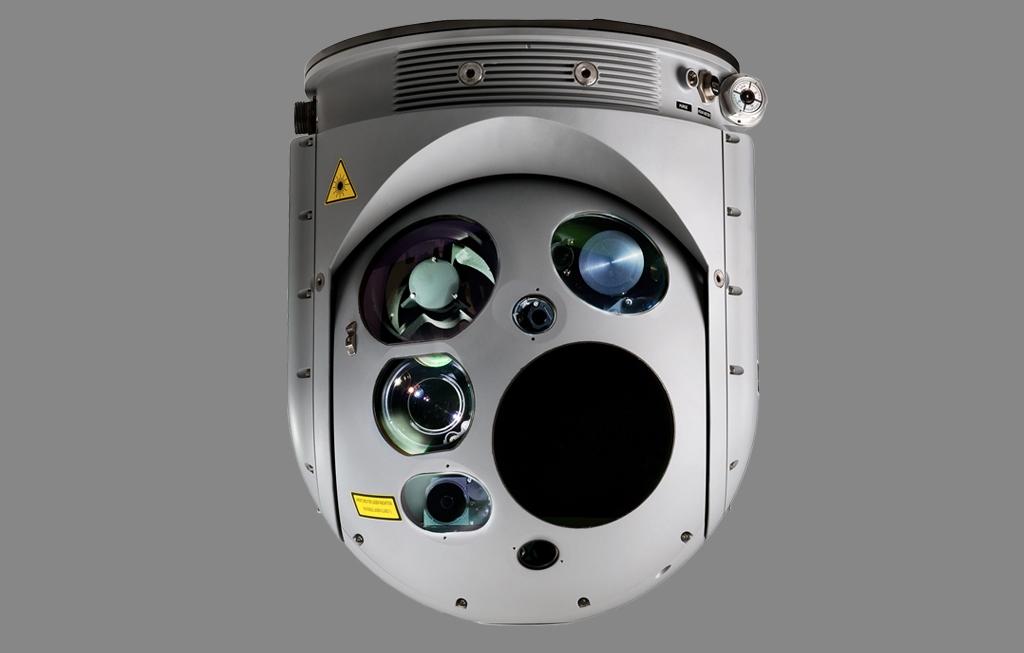For almost two decades, companies from the United States and Israel have been undisputed market leaders for armed drones, now China and Turkey can book more and more exports for themselves.The Turkish "Bayraktar TB2", which has been used by the Turkish military in Turkish, Syrian and now Iraqi part of Kurdistan, has been used in the Turkish military.In the four -month operation "Olivezweig" in Rojava Kurdish, the "TB2" is said to have scored 449 direct hits three years ago and enabled fighter planes or helicopters in 680 cases.
The drone is manufactured with a payload of 65 kilograms from Baykar, its namesake and founder is Selçuk Bayraktar, now he is a son -in -law of the Turkish president.The "TB2" attacks on opposing troops flew for the Tripolis government in Libya and for Azerbaijan, and it could even have been crucial in front of Berg-Karabach.The aggressive operations provided further orders, after Qatar, Ukraine, Morocco, Tunisia and Turkmenistan, Baykar sells the drone as the first NATO state in Poland, and is also supposed to be interested in Lithuania.
Import of key components
The comparatively young Turkish drone industry can produce many components of their unmanned aerial vehicles themselves or shop from domestic suppliers, but manufacturers are still dependent on imports for key components.This affects engines, for example, which are also produced in Turkey, but are less powerful than competing products.That is why the "TB2" flew with Rotax engines from Austria.After the Turkish support of the Azerbaijani war of aggression, the company stopped delivery to Baykar.
According to the Kurdish news agency in Baykar, Baykar also bought from Continental Motors, a US group, partly based in Germany, who took over Thielert Aircraft Engines GmbH eight years ago.In a crashed "TB2" there was a cruise control from the Bavarian company MT-Propeller.A installation of the Armenian National Committee of America Runze Digores also installed a radar height meter made by SMS Smart Microwave Sensors GmbH and a fuel filter from Hengst in the drone.
However, exports of these products are not subject to approval, sales can also be made through intermediate traders.For example, Hengst also sells its products in automotive wholesale;According to its own statement, the company does not know how the filter came into possession of Baykar.All other companies did not respond to a request for comment.
Gimbal with laser marker
Originally, the "TB2" was also equipped with a sensor module from the Canadian manufacturer WESCAM.It is almost the eye of the drone, which is hung on the fuselage in a hemispherical container.This so -called gimbal can be swiveled by 360 ° and contains, among other things, optical and infrared -based cameras and various laser technology.
WESCAM also finally ended his cooperation with Baykar after the government in Ottawa issued a ban on export on the occasion of the war around Berg-Karabach.The country had already imposed a preliminary delivery freezer in Northern Syria after Turkish operations in Rojava in Kurdish.
Selçuk Bayraktar commented on the decision made by the Canadian Foreign Minister with the words that the required sensor technology could now also be produced in Turkey.However, the cameras produced by Aselsan are more difficult than the import devices, so that the payload of small combat drones would reduce themselves drastically.

Federal government holds shares in Hensoldt
The Hensoldt Group from Germany, which specializes in sensor technology specializes in sensor technology, could now benefit from the continued import requirement.This indicates recordings of a parade in the capital of Turkmenistan, in which a freshly bought "TB2" was also shown on the occasion of the 30th anniversary of obtaining independence two weeks ago in Aşgabat.
The drone was equipped with a gimbal from Hensoldt.The blog “Oryx”, which specializes in military technology, first reported on this.The device contains the Argos-II module, which, according to the product description, has a laser lighter and a laser marker.This means that a rocket can be led to the finish.
Hensoldt was created after a spin -off of various areas of the armaments group Airbus, including the business with radar devices, optronics, avionics and systems for the disorder of electronic devices.As a company of outstanding security -political importance, the federal government had secured a blocking minority.The Italian armaments group Leonardo is also a shareholder.
The Argos module is manufactured by the Hensoldt branch Optronics PTY in Pretoria in South Africa.On request, a company spokesman confirms the cooperation with Baykar.Accordingly, the devices from South Africa were delivered to Baykar in an unnoted number "as part of an order".“All applicable national and international laws and export control regulations” were observed.
Permits for rocket technology
The armament of the "TB2" with laser -controlled rockets was also carried out with German help.This proves answers to small inquiries in the German Bundestag, about which the magazine "Monitor" reported.According to this, the German Foreign Ministry has given several export permits for battle heads from a tank defense rocket.They come from the company TDW Effective Systeme GmbH from the Bavarian Schrobenhausen, a branch of the European rocket manufacturer MBDA.
The sales were therefore presumably to the Turkish company Rotetsan in state ownership.Plants or parts to manufacture the rockets are also said to have been exported to Turkey.
TDW's steering weapons were the types "Lrat" and "Mrat", which are produced in Turkey under a different name.Based on German exports, Rotsan is said to have developed the "MAM" rockets for drones, they are now part of the standard equipment of the "TB2".This so-called micro-precision ammunition are light battle heads with which armored goals can be destroyed.
No information for sale in third countries
Retsan sells the MAM core monkeys in three different versions, including as a so-called vacuum bomb.Your development could have been carried out with the collaboration of the Bavarian company Numerics Software GmbH, so it writes in German.Numerics specializes in calculating the optimal explosive effect of armor -breaking weapons.According to the German Foreign Ministry, the products of the company, for which delivery to Turkey has been granted permits, are not suitable for the battle heads in question.
If the Federal Government grants export permits for armaments goods, it can insist on a so -called final removal declaration.In the case of Turkey, the government would commit itself to obtaining German permission before reselling to a third country.
The Foreign Ministry does not want to say whether such an exchange has taken place with rockets, sensors or other German technology.According to an answer from last year, export permits for goods "for use or installation in military drones" with a total value of almost 13 million euros were granted to Turkey.


